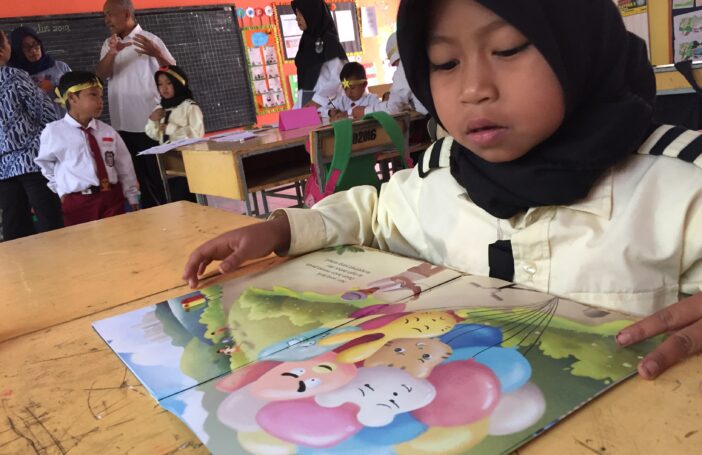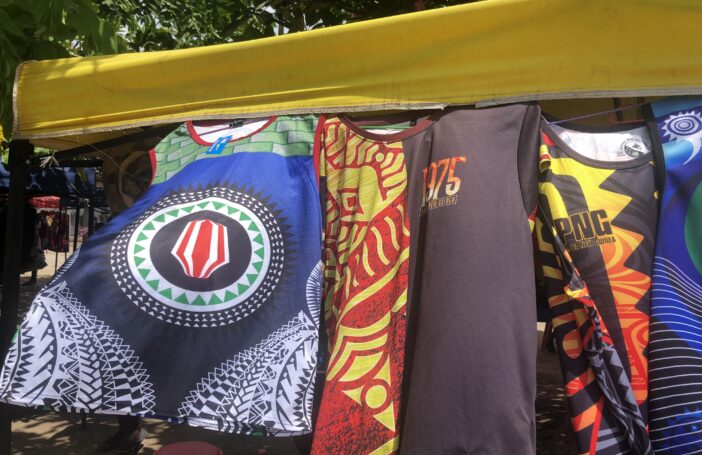 At an early juncture in his engaging and enlightening book, Melanesia: Travels in Black Oceania, Hamish McDonald meets a cantankerous Fijian chief somewhere in the inlands of Viti Levu. The chief is short-fused because he thinks McDonald is there to fleece him. “You are a writer, and you want to go and … make money from a book”, he thunders. McDonald is accurate in reply, “I explained that the prospects of profit were not great for a project like this.”
At an early juncture in his engaging and enlightening book, Melanesia: Travels in Black Oceania, Hamish McDonald meets a cantankerous Fijian chief somewhere in the inlands of Viti Levu. The chief is short-fused because he thinks McDonald is there to fleece him. “You are a writer, and you want to go and … make money from a book”, he thunders. McDonald is accurate in reply, “I explained that the prospects of profit were not great for a project like this.”
McDonald is correct. Melanesia has always been a hard sell to Australian publishers who think few people care enough about the place to make it commercially viable. It’s getting harder too. Advances are slimmer, publishing runs smaller, the heights that one must scale to get a general interest book such as this commissioned higher.
Most writing about Melanesia these days comes from academics, funded by government grants, at least some of which come with “no surprises clauses” written into them. Zesty, first-person writing is not encouraged. As Peter Varghese observed in his review of Australian Government funding to non-government organisations for national security-related research, there is a growing tendency for “governments of all persuasions to exercise greater control of the policy narrative”. Space and scope, therefore, to write candidly and openly, and therefore insightfully, about Melanesia is vanishingly small. And getting smaller still. As I was editing this review, I saw a notification that Benar News, a recent welcome new addition to news stories about the Pacific, has stopped operations, another victim of the new US administration’s scything cuts.
This dearth of information is problematic. Now more than ever Australians need to be able to access well-sourced, well-written, informed knowledge about this region of increasing geopolitical importance which stretches from Indonesia’s Papua provinces to Fiji and could, potentially, be home to as many as many as three new nation-states in Bougainville, New Caledonia and West Papua. McDonald’s book helps tremendously. It is a comprehensive, balanced and nuanced primer on the past, present and uncertain future of this region.
McDonald dipped in and out of Melanesia during his years as a foreign correspondent. He feels like he never got much beyond the meniscus, restricted to capital cities and writing up the sonorous pronouncements of political elites for newspaper copy. Now retired, he has time on his hands to follow his hunch that the real story is not in these air-conditioned hotels but beyond the tarmac road of capital cities, places accessible only via rust-bucket ships, rattletrap trucks or lung-bursting hikes.
And so off he goes, starting first in Fiji and then wandering onwards to Vanuatu, New Caledonia, Solomon Islands, Bougainville, the New Guinea islands and the vast waterways of the Fly and the Sepik before recalling old excursions in Indonesia’s Papua provinces. (He can’t take any new sojourns for this book because the Indonesians denied him a visa, probably because of his previous journalism.) He hooks up with a few big-name politicians but for the most part he travels with a more unsung and generally more interesting cast, among them long-time Chinese businesspeople in Vanuatu; a hotelier, a taxman and betelnut traders in Papua New Guinea; and the doughty captains and crews of the multiple ships on which he sails. He spends next to no time in capital city hotels.
Each chapter follows a similar pattern, beginning first with McDonald locating the reader as to where he is and how he got there before delving into wide-ranging, lucid and illuminating history which explains how the present is as it is. The formula works. Not knowing the place at all well, I found McDonald’s explanation of the complicated twists and turns of New Caledonia’s history especially useful. Knowing Bougainville reasonably well, I found his account of the region’s history nuanced and correct.
The gravity of history is a major theme throughout the chapters, something for anyone venturing to work in Melanesia in any capacity to have uppermost in mind. It is important to remember, McDonald shows us, that it was a region that toggled between colonial neglect, avarice and jarring violence — and these legacies still echo. In Malaita, Solomon Islands, he visits the site of a colonial massacre. In one of the book’s best chapters, set on a lake in Papua New Guinea’s Western Province, he visits a village where the theft of objects by Australians one hundred years ago is still remembered as if it were yesterday. It’s hardly a surprise, come to think of it, that the Fijian chief is galled by McDonald in his midst, perceiving him as the embodiment of most white people that have shown up with a plan and a smile in the years before.
The Melanesian world that McDonald uncovers is a world away from the narrative of government dysfunction that is often the dominant framing of Melanesia. It is full of people getting on with it as best they can, ofttimes with little or no help from government. Indeed, government or “the State” doesn’t feel particularly present as soon as McDonald gets beyond the capital city. That too is an important lesson for those working in Melanesia to bear in mind. Donor projects, with one important exception, don’t figure in the lives of McDonald’s interlocutors at all. The exception is the seasonal worker scheme, which many Melanesians clamour to get on. “There are long queues of applicants” throughout Melanesia, McDonald writes poignantly, close to the end of the book. Melanesia is now coming to us and a whole lot of people beyond academia — factory owners, fruit picking companies, aged care providers, leaders and community members in towns across Australia — need to understand it better. They are an important audience for this book.
The book recalls other fine first-person adventures set in Melanesia from the early 2000s: Michael Moran’s Beyond the Coral Sea set in the New Guinea islands, and Charles Montgomery’s shimmering Shark God about the imprints of religion on Solomon Islands and Vanuatu. Of more recent vintage is Edward Cavanough’s eminently readable Divided Isles about Solomon Islands. Travelogues such as these are powerful because they allow readers outside this region to live vicariously, understand worlds beyond their own and often present a reality different to the stage-managed ones presented elsewhere. McDonald tells it as his experienced eyes see it and the book is all the more readable for that.




